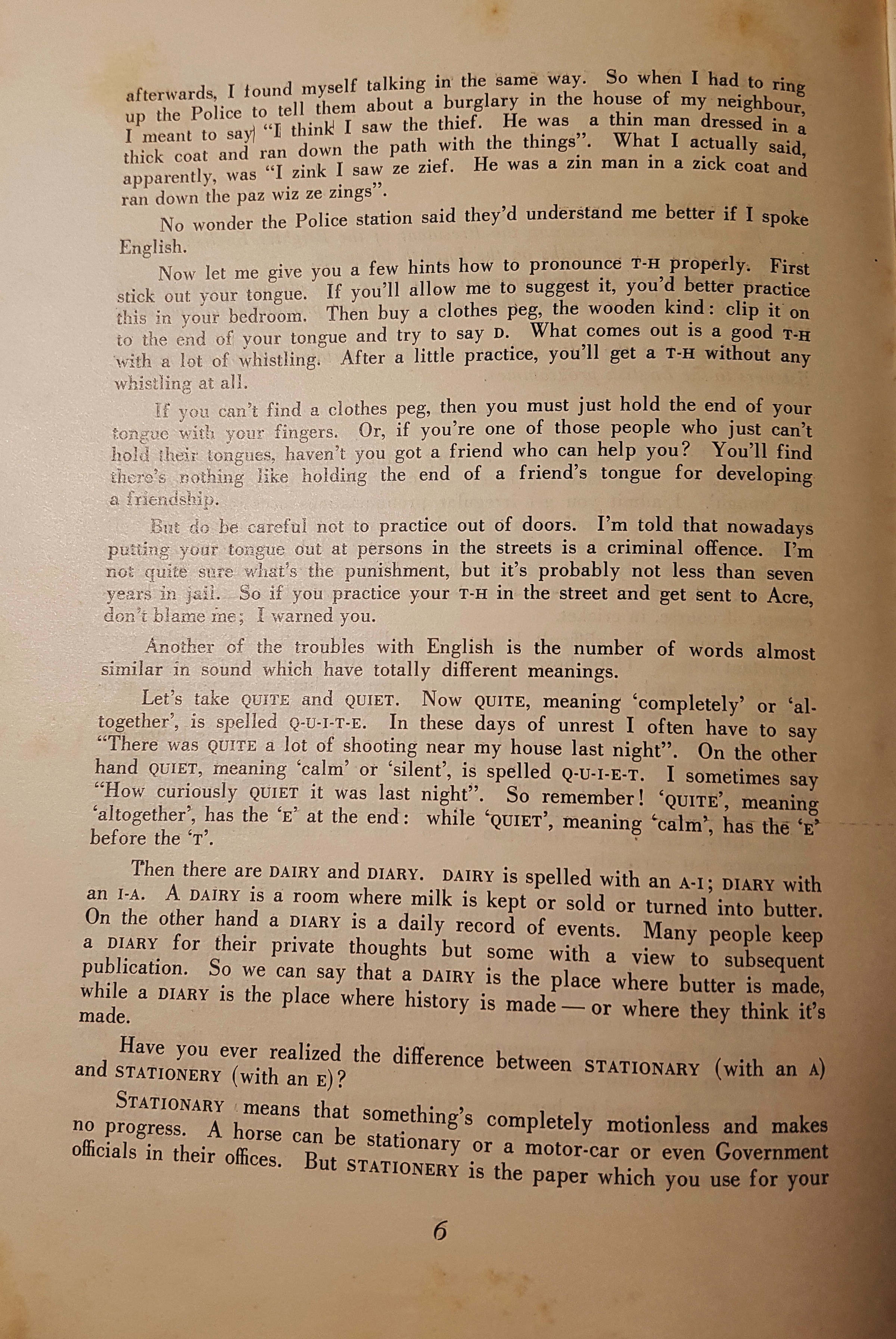|
Let's Speak English
| Contents | Previous Page | Next Page | - Page 6 - afterwards, I found myself talking in the same way. So when I had to ring up the Police to tell them about a burglary in the house of my neighbour, I meant to say " I think I saw the thief. He was a thin man dressed in a thick coat and ran down the path with the things". What I actually said, apparently, was "I zink I saw ze zief. He was a zin man in a zick coat and ran down the paz wiz ze zings". No wonder the Police station said they'd understand me better if I spoke English. Now let me give you a few hints how to pronounce T-H properly. First stick out your tongue. If you'll allow me to suggest it, you'd better practice this in your bedroom. Then buy a clothes peg, the wooden kind: clip it on to the end of your tongue and try to say D. What comes out is a good T-H with a lot of whistling. After a little practice, you'll get a T-H without any whistling at all. If you can't find a clothes peg, then you must just hold the end of your tongue with your fingers. Or, if you are one of these people who just can't hold their tongues, haven't you got a friend who can help you? You'll find there's nothing like holding the end of a friend's tongue for developing a friendship. But do be careful not to practice out of doors. I'm told that nowadays putting your tongue out at persons in the streets is a criminal offence. I'm not quite sure what's the punishment, but it's probably not less than seven years in jail. So if you practice your T-H in the street and get sent to Acre, don't blame me; I warned you. Another of the troubles with English is the number of words almost similar in sound which have totally different meanings. Let's take QUITE and QUIET. Now QUITE, meaning 'completely' or 'altogether', .is spelled Q-U-I-T-E. In these days of unrest I often have to say "There was QUITE a lot of shooting near my house last night". On the other hand QUIET, meaning 'calm' or 'silent', is spelled Q-U-I-E-T. I sometimes say "How curiously QUIET it was last night". So remember! 'QUITE', meaning "altogether"has the 'E'' at the end: while 'QUIET', meaning 'calm', has the 'E' before the 'T'. Then there are DAIRY and DIARY. DAIRY is spelled with an A·I; DIARY with an I-A; A DAIRY is a room where milk is kept or sold or turned into butter. On the other hand a DIARY is a daily record of events. Many people keep a DIARY for their private thoughts but some with a view to subsequent publication. So we can say that a DAIRY is the place where butter is made, while a DIARY is the place where history is made - or where they think it's made. Have you ever realized the difference between STATIONARY (with an A) and STATIONERY (with an E)? STATIONARY means that something's completely motionless and makes no progress. A horse can be stationary or a motor-car or even Government officials in their offices. But STATIONERY is the paper which you use for your |

|
|
| Contents | Previous Page | Next Page |